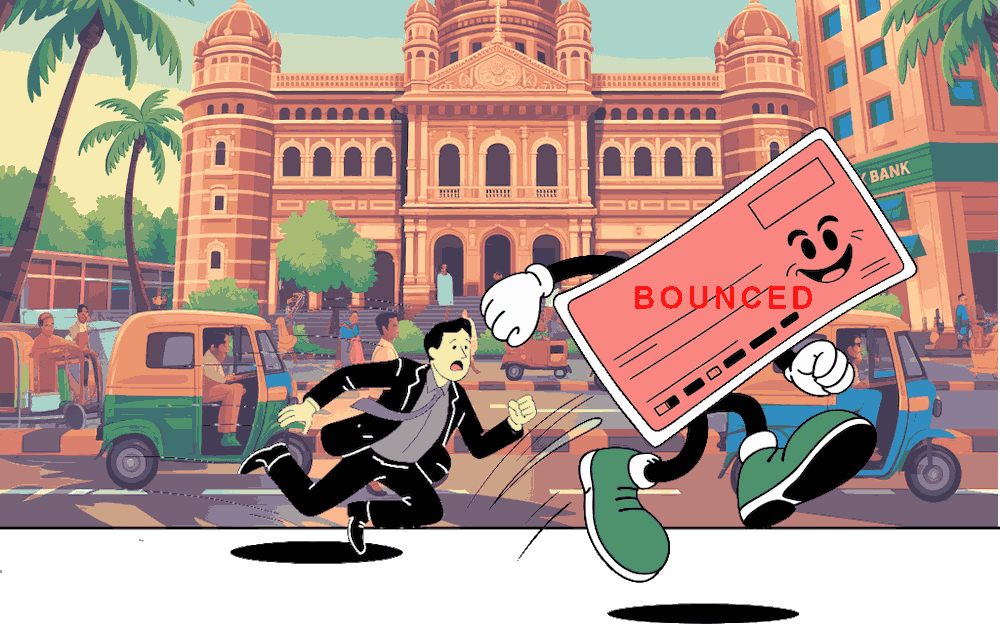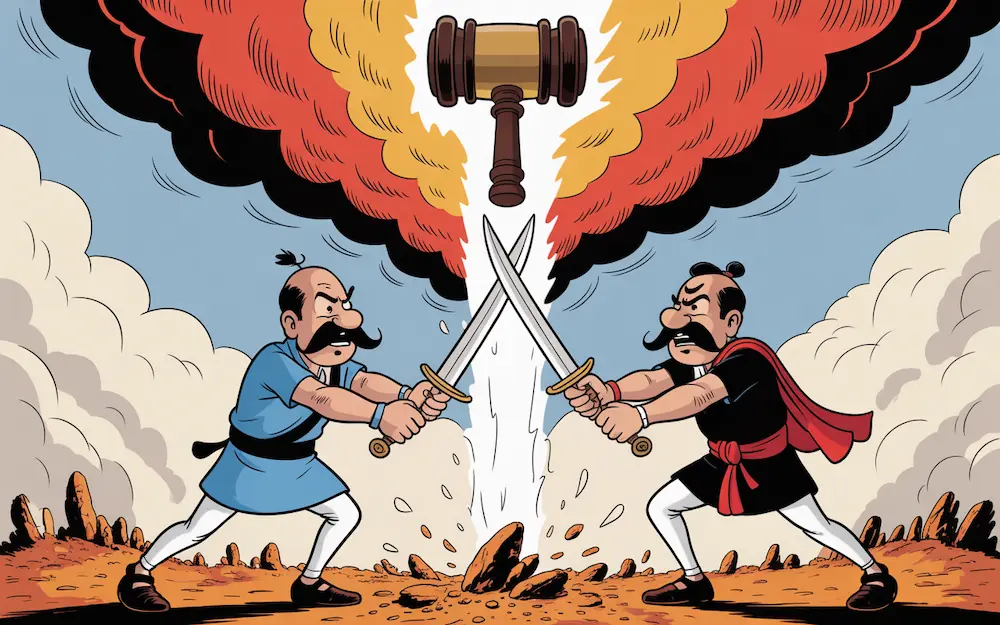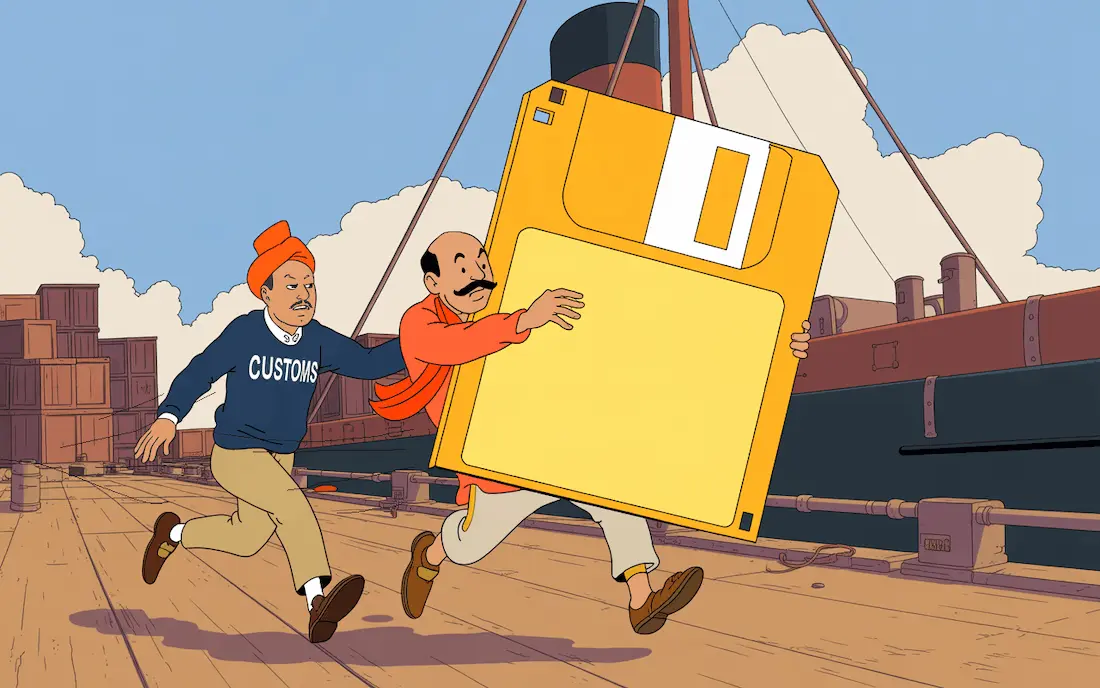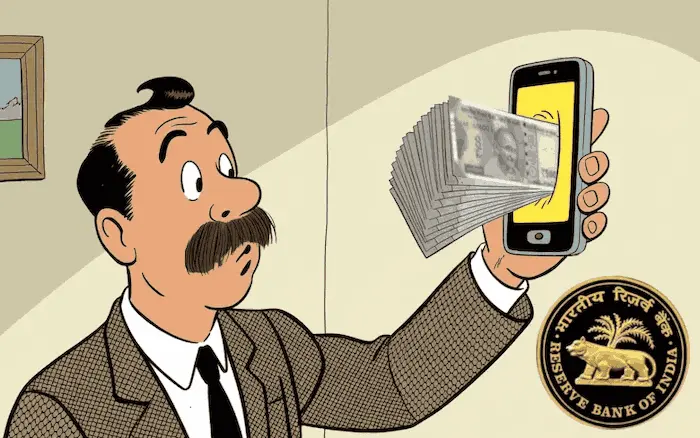
Cheque dishonour is one of the most commonly encountered commercial offences in India, cutting across sectors and client categories. Section 138 of the Negotiable Instruments Act, 1881 ("NI Act") lays down the criminal liability for cheque bounce, provided specific procedural conditions are met. While the provision appears straightforward, its interplay with procedural laws, insolvency, and director liability has evolved significantly. This blog post breaks down the essentials, incorporating the latest Supreme Court judgments and procedural updates as of 2025.
Statutory Framework & Timeline
Under Section 138, criminal liability arises when:
- A person draws a cheque for discharge of a legally enforceable debt or liability;
- The cheque is returned unpaid by the bank for insufficiency of funds or any other reason;
- The payee issues a written demand notice to the drawer within 30 days of receipt of the bank return memo;
- The drawer fails to make payment within 15 days of receiving such notice; and
- The payee files a complaint within 30 days of the lapse of the 15-day period.
In one of the most significant judgments under the NI Act so far in 2025, the Supreme Court in Vishnoo Mittal v. Shakti Trading Co. [2025 INSC 346] held that the offence under Section 138 is not complete until the 15-day notice period has expired without payment. Any proceedings initiated before this expiry are premature and liable to be quashed:-
"This Court in Jugesh Sehgal v. Shamsher Singh Gogi (2009) 14 SCC 683 has explained the ingredients of Section 138 of NI Act offence as follows:
“13. It is manifest that to constitute an offence under Section 138 of the Act, the following ingredients are required to be fulfilled:
(i) a person must have drawn a cheque on an account maintained by him in a bank for payment of a certain amount of money to another person from out of that account;
(ii) the cheque should have been issued for the discharge, in whole or in part, of any debt or other liability;
(iii) that cheque has been presented to the bank within a period of six months from the date on which it is drawn or within the period of its validity whichever is earlier;
(iv) that cheque is returned by the bank unpaid, either because of the amount of money standing to the credit of the account is insufficient to honour the cheque or that it exceeds the amount arranged to be paid from that account by an agreement made with the bank;
(v) the payee or the holder in due course of the cheque makes a demand for the payment of the said amount of money by giving a notice in writing, to the drawer of the cheque, within 15 days of the receipt of information by him from the bank regarding the return of the cheque as unpaid;
(vi) the drawer of such cheque fails to make payment of the said amount of money to the payee or the holder in due course of the cheque within 15 days of the receipt of the said notice.
Being cumulative, it is only when all the aforementioned ingredients are satisfied that the person who had drawn the cheque can be deemed to have committed an offence under Section 138 of the Act.” In other words, the cause of action arises only when the amount remains unpaid even after the expiry of fifteen days from the date of receipt of the demand notice."
The RBI further mandates that a cheque must be presented within three months of its date of issue.
Recent Legal and Procedural Updates
Moratorium under IBC and Director Liability
The legal position has evolved post P. Mohanraj v. Shah Brothers Ispat Pvt Ltd. [AIR 2021 SC 1308] where the Supreme Court held that the moratorium under Section 14 of the Insolvency and Bankruptcy Code ("IBC") bars proceedings under Section 138 against the corporate debtor.
However, in Vishnoo Mittal (above), the Court clarified that where the cause of action- particularly, the expiry of the 15-day statutory notice period- arises after the moratorium has commenced, proceedings against directors (qua natural persons) may still be maintainable. This underscores that directors cannot blindly seek shelter under the corporate moratorium without examining the timeline of events.
Digital Negotiable Instruments (NI) Act Courts
In a move to expedite the mounting backlog of cheque bounce cases (over 4.5 lakh pending in Delhi NCR alone), 34 dedicated NI Act digital courts were operationalised at Rouse Avenue Court Complex, Delhi, in May 2025. This marks a significant shift in procedural convenience and access to justice, especially for corporate complainants. The judiciary has assured that these courts will be fully e-connected, enabling seamless filing and e-service of notices.
Key Judicial Clarifications
Interim Compensation under Section 143A
Section 143A allows courts to direct the drawer to pay interim compensation up to 20% of the cheque amount during the pendency of the case. In Rakesh Ranjan Shrivastava v. State of UP [2024 INSC 205], the Supreme Court held that this power is discretionary. Courts must weigh the preliminary defence raised and avoid a mechanical grant of compensation:-
"Subject to what is held earlier, the main conclusions can be summarised as follows:
a. The exercise of power under sub-section (1) of Section 143A is discretionary. The provision is directory and not mandatory. The word “may” used in the provision cannot be construed as “shall.” b. While deciding the prayer made under Section 143A, the Court must record brief reasons indicating consideration of all relevant factors.
c. The broad parameters for exercising the discretion under Section 143A are as follows:
i. The Court will have to prima facie evaluate the merits of the case made out by the complainant and the merits of the defence pleaded by the accused in the reply to the application. The financial distress of the accused can also be a consideration.
ii. A direction to pay interim compensation can be issued, only if the complainant makes out a prima facie case.
iii. If the defence of the accused is found to be prima facie plausible, the Court may exercise discretion in refusing to grant interim compensation.
iv. If the Court concludes that a case is made out to grant interim compensation, it will also have to apply its mind to the quantum of interim compensation to be granted. While doing so, the Court will have to consider several factors such as the nature of the transaction, the relationship, if any, between the accused and the complainant, etc. v. There could be several other relevant factors in the peculiar facts of a given case, which cannot be exhaustively stated. The parameters stated above are not exhaustive."
Victim Status and Right to Appeal
In Celestium Financial Services Ltd. v. Gnanasekaran [2025 INSC 804], the Supreme Court ruled that complainants in Section 138 cases qualify as "victims" under Section 2(wa) of the CrPC. Consequently, they have the right to directly appeal an acquittal under the proviso to Section 372 CrPC, without seeking special leave under Section 378. This is a significant boost to payees, often disadvantaged by procedural hurdles. Relevant portion of the judgment is reproduced below:-
"In the circumstances, we find that Section 138 of the Act being in the nature of a penal provision by a deeming fiction against an accused who is said to have committed an offence under the said provision, if acquitted, can be proceeded against by a victim of the said offence, namely, the person who is entitled to the proceeds of a cheque which has been dishonoured, in terms of the proviso to Section 372 of the CrPC, as a victim. As already noted, a victim of an offence could also be a complainant. In such a case, an appeal can be preferred either under the proviso to Section 372 or under Section 378 by such a victim. In the absence of the proviso to Section 372, a victim of an offence could not have filed an appeal as such, unless he was also a complainant, in which event he could maintain an appeal if special leave to appeal had been granted by the High Court and if no such special leave was granted then his appeal would not be maintainable at all. On the other hand, if the victim of an offence, who may or may not be the complainant, proceeds under the proviso to Section 372 of the CrPC, then in our view, such a victim need not seek special leave to appeal from the High Court. In other words, the victim of an offence would have the right to prefer an appeal, inter alia, against an order of acquittal in terms of the proviso to Section 372 without seeking any special leave to appeal from the High Court only on the grounds mentioned therein."
Director’s Liability Under Section 141
Vicarious liability under Section 141 requires specific averments showing that the director was "in charge of and responsible for" the conduct of the business at the time of the offence. Merely holding a designation is insufficient. In KS Mehta v. Morgan Securities and Credits Pvt. Ltd. [2025 INSC 315], the Delhi High Court quashed proceedings against a non-executive director for lack of such averments :-
"17. Upon perusal of the record and submissions of the parties, it is evident that the Appellant(s) neither issued nor signed the dishonoured cheques, nor had any role in their execution. There is no material on record to suggest that they were responsible for the issuance of the cheques in question. Their involvement in the company’s affairs was purely non-executive, confined to governance oversight, and did not extend to financial decision- making or operational management.
18. The complaint lacks specific averments that establish a direct nexus between the Appellant(s) and the financial transactions in question or demonstrate their involvement in the company’s financial affairs. Additionally, the CGR(s) and ROC records unequivocally confirm their non-executive status, underscoring their limited role in governance without any executive decision-making authority. The mere fact that Appellant(s) attended board meetings does not suffice to impose financial liability on the Appellant(s), as such attendance does not automatically translate into control over financial operations.
CONCLUSION
19. Given the lack of specific allegations and in view of the aforesaid observations, the Appellant(s) cannot be held vicariously liable under Section 141 of the NI Act."
Practical Takeaways
Recommendations:-
- Payees - Serve statutory notice via email/WhatsApp with proof of delivery; Track timelines diligently; Consider interim compensation judiciously.
- Drawers - Ensure debt is not time-barred; Preserve proof of payment; If under IBC, track moratorium triggers carefully.
- Lawyers - Frame pleadings with precise averments on director responsibility; Cite updated case law; Use CrPC Section 372 to challenge acquittals.
This area of law remains deceptively simple yet procedurally unforgiving. With the expansion of director liability, increasing digitisation of courtrooms, and nuanced interplay with insolvency laws, both complainants and accused must tread carefully. The courts continue to reiterate the need for a balance between deterrence and fairness. And in doing so, clarify and evolve this crucial branch of commercial criminal law.
More Articles
-

Government Dues vs. IBC Protection: Can Tax Authorities Pursue Pre-CIRP Dues?
01 Jul 2025
-

What Happens After SEIS? ASSSE Pilot Survey 2025 and Incentives for Service Exporters Under India’s Current Trade Framework
29 May 2025
-

Setting Up Solar Power Projects in Haryana: A Legal & Regulatory Overview (2025)
25 Jul 2025
-

KYC Requirements for Apps, Startups & Online Platforms in India: PPI and Non-PPI (2025)
30 Jun 2025
